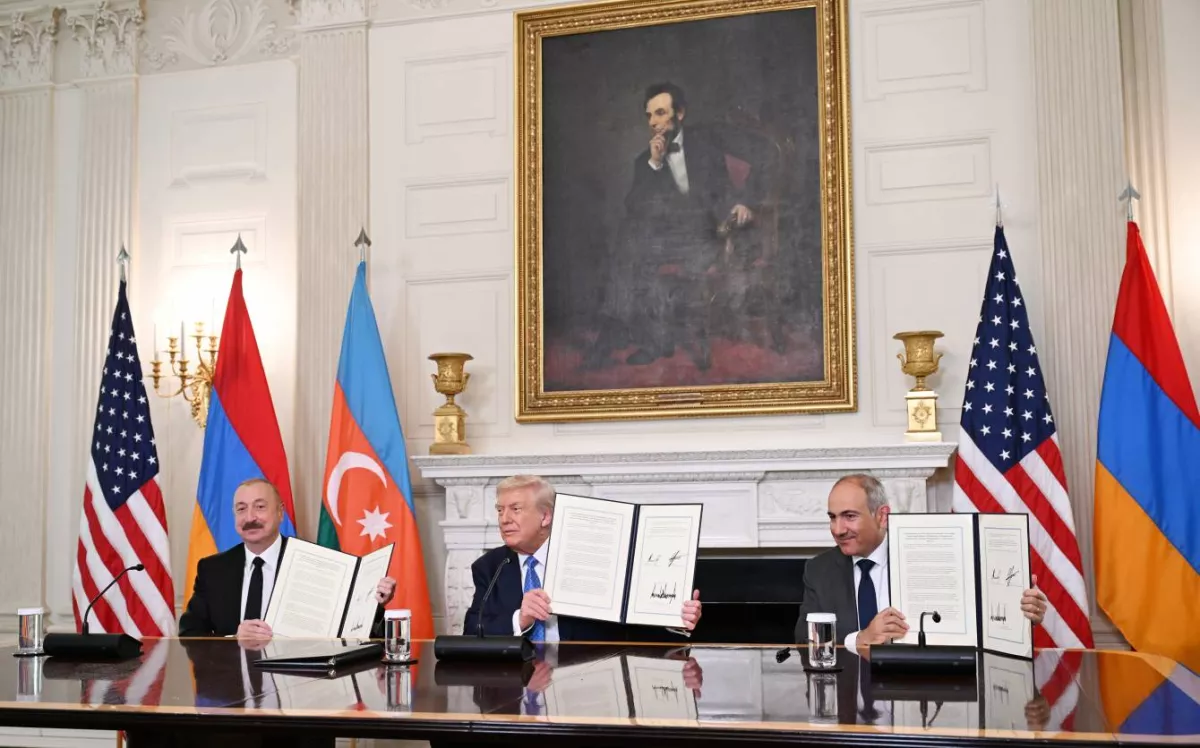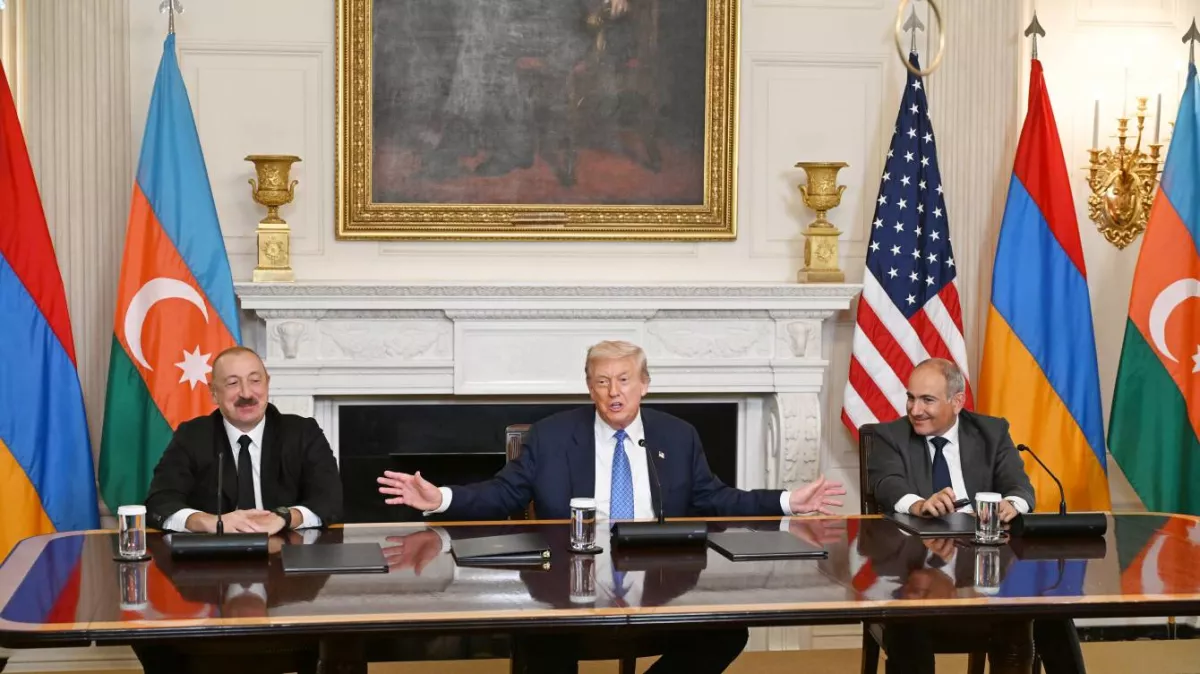Historic US-brokered agreement ends decades-long Armenia-Azerbaijan conflict Article by Newsmax
The US-based Newsmax has published an article by Paul Miller highlighting the recent breakthrough in negotiations between Azerbaijan and Armenia in Washington. Caliber.Az offers its readers an adapted version of the piece.
“For decades, the conflict between Armenia and Azerbaijan over the Karabakh region seemed destined to remain one of the world’s most intractable disputes.
Thirty years of illegal Armenian occupation, ethnic cleansing, and cultural destruction left deep wounds, generations of displaced Azerbaijanis, and a land scarred — literally — by the deadly legacy of landmines.
Earlier this month, however, an outcome once thought impossible occurred.
Armenia and Azerbaijan signed a US-brokered peace agreement (Joint Declaration-ed.) that could finally turn the page on one of the longest and bloodiest post-Soviet chapters.

To appreciate the magnitude of this breakthrough, we need to remember the history.
In the early 1990s, Armenia illegally occupied Karabakh — territory that the United Nations Security Council (UNSC) had repeatedly affirmed as part of Azerbaijan. UNSC Resolutions 822, 853, 874, and 884 all called for the immediate withdrawal of all occupying Armenian forces from the illegally occupied territories of Azerbaijan.Those resolutions were clear, but they went unenforced.
For three decades, Armenian forces held the land in violation of international law, expelling nearly all of its Azerbaijani population in what can only be described as ethnic cleansing.
Under Armenian occupation, Karabakh became a wasteland.
Villages were destroyed. Mosques, churches, and cemeteries were desecrated. Forests were clear-cut in acts of ecoterrorism. Entire towns were reduced to rubble.
And when Azerbaijan finally liberated its internationally recognized territories during the wars of 2020 and 2023, it inherited not a functioning region but a humanitarian and environmental catastrophe — one seeded with hundreds of thousands of landmines, making large areas uninhabitable.
Rebuilding Karabakh has required massive investment and vision from Azerbaijan. But reconstruction alone was never going to secure lasting peace. That would require diplomacy. And for decades, diplomacy failed.
The OSCE Minsk Group — co-chaired by France, Russia, and the US — became little more than a talk shop, unable or unwilling to deliver meaningful progress, let alone a tangible peace agreement.
At the same time, in the years following the 2020 war, Azerbaijan repeatedly called for peace and made offers to normalize relations with Armenia.
The latest phase of talks took a different path. Rather than outsourcing the process to ineffective multilateral bodies, Azerbaijan initiated direct negotiations with Armenia. It was here that U.S. leadership — under President Donald Trump — proved decisive.
Trump's return to active diplomacy injected energy, credibility, and leverage into the process at precisely the right moment.
The peace deal isn’t just a diplomatic win; it's a human one. It offers hope to the hundreds of thousands of Azerbaijanis displaced since the 1990s that they may finally return to their ancestral homes.
It provides Armenia with the opportunity to normalize relations with its neighbor, unlocking potential economic and trade benefits that could transform its own future.
And it signals to the wider region that reconciliation is possible after decades of bloodshed and mistrust.

Skeptics will inevitably express doubt that the agreement will hold. The road ahead will be challenging.
Decades of hostility won’t vanish overnight, and confidence-building measures are necessary to ensure that peace endures. Landmine clearance, infrastructure restoration, and the return of internally displaced people (IDPs) are enormous tasks.
But these are the types of challenges that nations can tackle together when the alternative — renewed war — is simply unacceptable.
The larger lesson here is one of American leadership. For too long, the US has been told that it can’t — or shouldn’t — play an active role in resolving faraway conflicts.
But the Azerbaijan-Armenia peace agreement proves otherwise. When America engages directly, when it leverages its diplomatic, economic, and moral influence, even the most stubborn conflicts can bend toward resolution.
The Trump administration's re-engagement in the South Caucasus shows the opposite — how decisive action, personal diplomacy, and an unapologetic commitment to results can bring warring nations to the table and keep them there until they find common ground.
In the end, what happened between Azerbaijan and Armenia is bigger than one conflict. It's a message to the world: Peace is possible, and it’s possible in places where prospects once seemed hopeless.
But it requires the US to lead — not from behind, not through endless committees, but from the front.
If that lesson endures, then this agreement will mark not just the end of one war, but a renewal of America’s role as the indispensable peace-brokering nation.”
Paul Miller is a Chicago area political consultant. He's president of the news and public policy group Haym Salomon Center. His commentary has been published in USA Today, New York Daily News, New York Post, Chicago Tribune, Newsweek, and The Hill.








